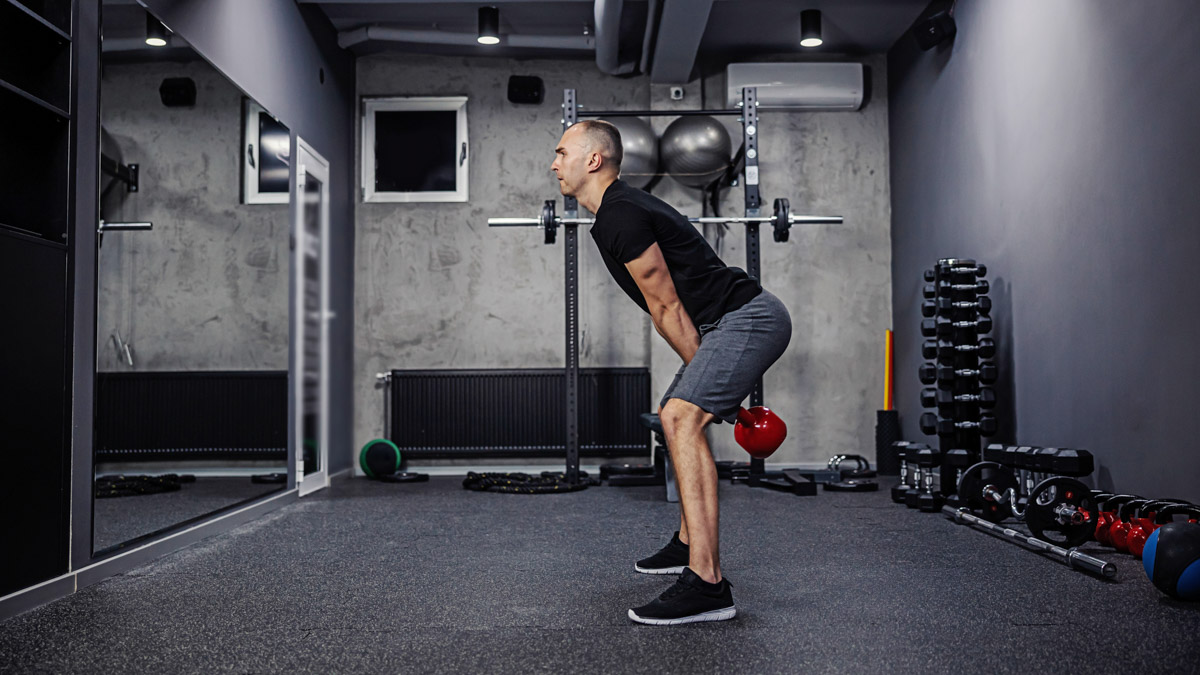When your competitive calendar is in full swing, it can be difficult to fit in as many gym sessions as you might like. But when your racing schedule winds down, should you upshift to doing harder strength-focused workouts more often? That’s what this article aims to answer.
As Andy Galpin, my Unplugged co-author and director of the Center for Sport Performance at Cal State, Fullerton, likes to say, the short answer to such a question is, “It depends.” He’s not trying to be evasive or hedge his bets, but rather stating a truth that’s often underappreciated in athlete preparation: context is everything. Before you say, “I’m going to strength train harder during my off-season,” you need to consider several variables.
Consider Training Load and Fitness When Weight Lifting
First, what does your overall training load look like when you don’t have any upcoming events? If you’re going to be ramping up your total mileage and/or the density and intensity of your workouts, then this will increase the physiological strain that your nervous, cardiovascular, musculoskeletal, and other bodily systems must recover from in order to obtain the desired adaptation. Already planning to dial these up from your normal in-season levels? Then how and when you strength train is going to have to take your endurance work into account or you will crush yourself physically and emotionally.
Second, where are you at in terms of movement competence, strength, power, and durability on the day your racing season officially ends? What happens in the weight room or your home gym cannot exist in isolation but needs to factor in where you find yourself during the off-season. You’d also do well to consider what your goals are, both for the off-season and for next year’s races. Once you’ve nailed these down, then you can work backward to identify deficiencies and opportunities for improvement.
Do I Even Need Strength Training?
It’s also important to recognize that just because your legs get sore from certain workouts (or maybe all of them, to some degree!), this doesn’t mean that such endurance work is prompting the kind of progression you want to see in your strength or power. Runners, for instance, can experience an accumulation of chronic load from foot strikes, but that’s not the same as what you get from squats, deadlifts, plyometrics, and other kinds of strength-focused work.
In a recent article, Tim DiFrancesco, DPT and founder of TD Athletes Edge, wrote that “the acute loads (during runs) are actually fairly low and do not provide a sufficient stimulus to produce beneficial structural changes in your muscles, bones, ligaments, and tendons. This is where resistance training comes in. The higher your total mileage, the more you compete, and the longer, harder, and more frequently you train, the more essential this load tolerance becomes.
Just because you’ve been able to get away with infrequent gym sessions — or skipping them entirely — doesn’t mean that this will be the case forever. Without resilient muscle and connective tissues, springy fascia, and durable joints and bones, your body will eventually break down, whether you suffer an acute injury or start to struggle with a chronic condition like plantar fasciitis, shin splits, Achilles tendonitis, and so on.”
A good starting point is to figure out the minimum effective dose. Typically, three to four strength sessions of 30 to 45 minutes per week should be sufficient. Start with the tried-and-true basics of squats, lunges, jumps, and hinges (e.g., deadlifts to start, and once you’ve mastered the movement, kettlebell swings to add a ballistic element). Then, add isolation exercises like calf raises and hamstring curls to strengthen the areas of your lower body that take a pounding on the road, track, and trail. The combo of compound lifts and those that target specific high-wear muscle groups should make you stronger, more powerful, and, perhaps most importantly, more durable over the long haul.
Get a Coach to Analyze Your Form
A highly conditioned athlete with a long history of sustainable strength training and a high degree of movement literacy will need a completely different off-season regimen than someone who has either never seen the inside of a gym or has made missteps in strength and power training in the past. If you don’t know how to accurately assess your current capabilities and then join the dots between these and your future targets, it would be beneficial to seek out an experienced coach.
Even scheduling a few short sessions for them to do an analysis like the Functional Movement Screen (FMS), get some basic body composition numbers, and evaluate what you need to be doing more of will be an invaluable investment. If you want to go one better and gain greater insight into your unique physiology, some coaches will assess your eating habits and even do bloodwork to determine any food sensitivity issues or micronutrient deficiencies that could undermine both your race day performance and strength training. Once these are corrected, there will be fewer roadblocks between where you are and where you want to end up.
To circle back to the initial question, if you don’t do a lot of strength work during your competitive season, then yes, it might be a good idea to add in a little more intensity and volume when racing stops. But if you’re already regularly doing resistance training and/or are going to be upping your mileage, then just stick with what’s working so you don’t overload yourself.









